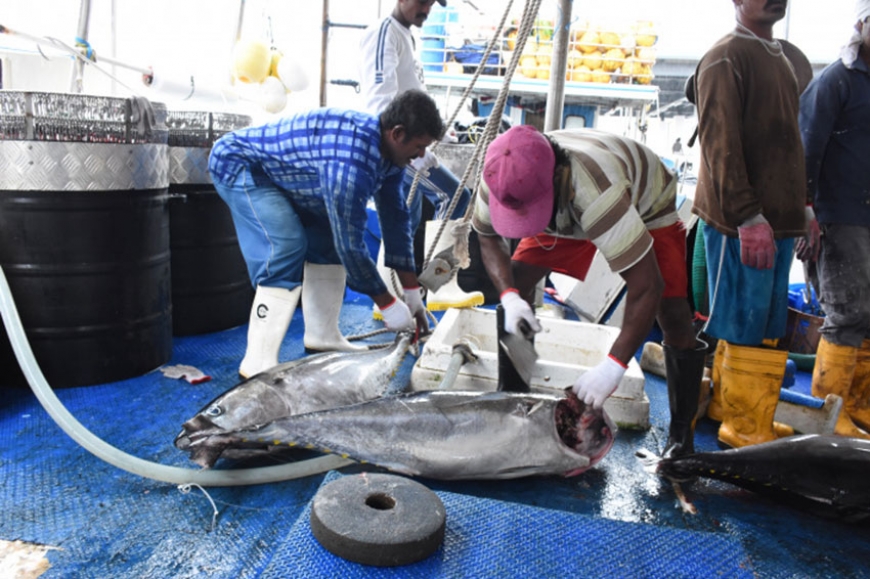Through its Monitoring Control and Surveillance Division (MCSD), the Seychelles Fishing Authority (SFA) has come up with several adjustments, as well as new measures which will boost the existing enforcement within the semi-industrial fishing, while some newly set requirements will be crucial in obtaining a local semi-industrial fishing licence.
Licenses are issued for semi-industrial fishing vessels to harvest tuna and tuna-like species only, with vessels under this category typically between 12m to less than 23.9m in length and must be 100 percent owned by one or more citizens of Seychelles, or a company established under any written laws of which all of the shares are beneficially owned by citizens of Seychelles.
Applicable license fee for participating in the semi-industrial (tuna and tuna-like species) fishery is R500 per vessel for one year.
To instruct boat owners on the new requirements, the SFA hosted a public meeting yesterday at the International Conference Centre (ICCS) where they were briefed on the new license conditions.
It was also the chance for them to bring up queries, as well as suggestions on how to better work as a unit alongside the SFA in implementing the new regulations, and also to point flaws which they think will affect their work and the industry as a whole.
Present at the meeting were the chief executive of the SFA Nichol Elizabeth, manager of the MCSD Johnny Louy, along with the authority’s other technicians who facilitated the session.
Some of the adjustments made are in relation to the VMS requirements, departure and arrival notifications, exclusion zones, reporting requirements, as well as Gainful Occupation Permit (GOP) for foreign workers.
The most debated topic at yesterday’s meeting was regarding the requirements to carry and operate Vessel Monitoring Systems (VMS) units.
VMS is a general term to describe systems that are used in commercial fishing to allow environmental and fisheries regulatory organisations to track and monitor the activities of fishing vessels.
They are a key part of monitoring control and surveillance programmes at national and international levels.
VMS may be used to monitor vessels in the territorial waters of a country or a subdivision of a country, or in the Exclusive Economic Zones (EEZ).
The SFA may require termination of fishing trip after 24 hours of non-reporting (following notice to owner), while a vessel cannot commence fishing trip if the VMS is non-operational.
The unit must be operational throughout the whole duration of the fishing trip and it should not be tampered with, or removed without the authorisation of the SFA.
Based on the above-mentioned requirements, several boat owners raised concerns regarding the SFA’s capacity in terms of manpower and resources to repair, or replace the equipment in time so it will not affect their operations.
Also on yesterday’s agenda was the departure and arrival notification requirements where fishing vessel may be subjected to pre-departure, or arrival inspections before any authorisations are granted, while offloading vessels may be subjected to sampling (for scientific researches).
As part of the reporting requirements, document logbooks and landing papers must be submitted to the SFA within 48 hours after completion of landing or before commencement of the next fishing trip, or whichever occurs first, while boat owner or skippers must ensure that they have adequate blank logbook which should be kept onboard the vessels.
In relation to GOP, it will be mandatory for the entire work permit to be valid prior to the commencement of any fishing trip and should be always onboard the vessel during fishing trips for control security measures.
Also during the meeting, those present had the chance to learn about the role of the MCSD which is to support the successful implementation of the agreed fisheries management policies, plans and strategies by ensuring compliance towards fishing conditions, management measures and fisheries legislations, both domestic and international, through effective flag state, coastal state and port state controls.
The key responsibility of the division is to deter, prevent and eliminate illegal, unreported and unregulated fishing.

